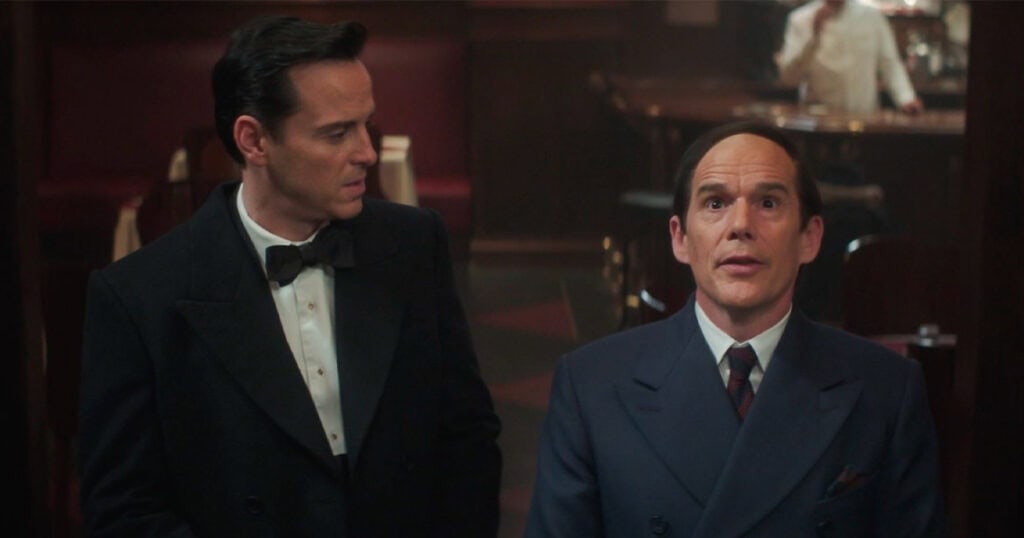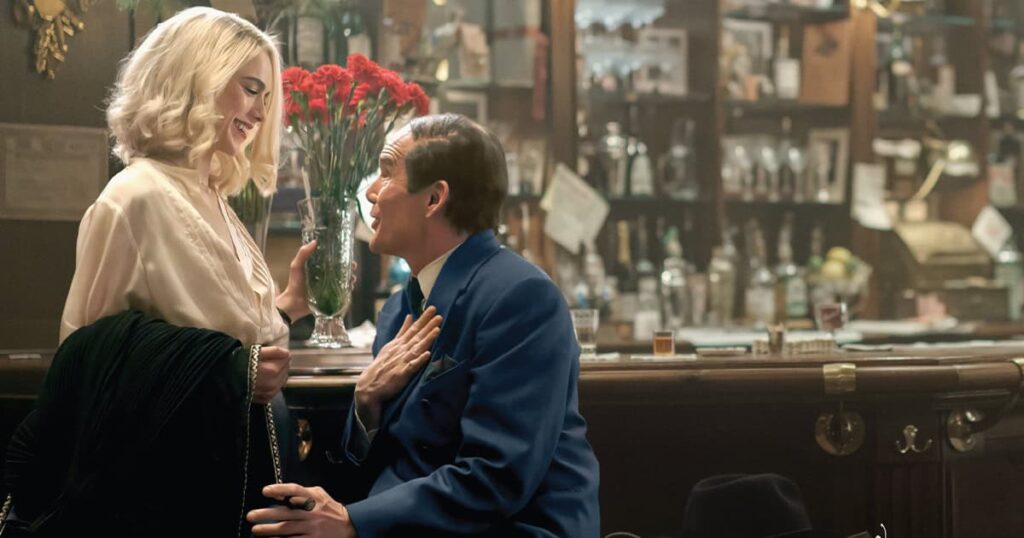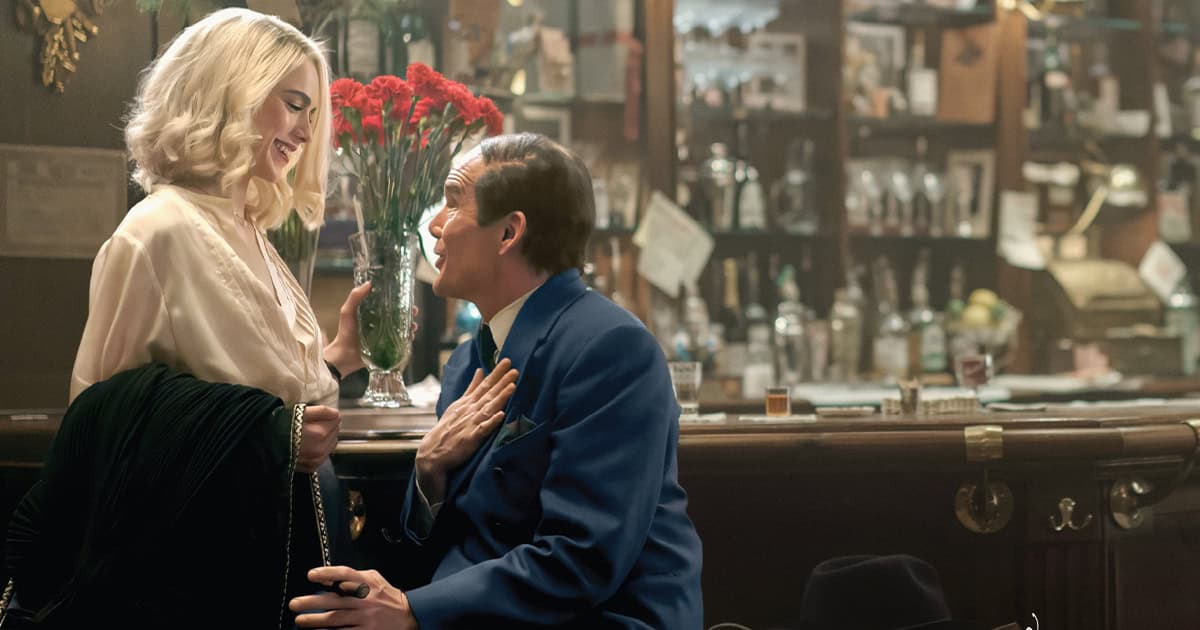PLOT: Lyricist Lorenz Hart (Ethan Hawke) entertains the patrons of a New York bar on the eve of the premiere of Oklahoma!, a play that marks the debut of his former professional partner Richard Rodgers’ (Andrew Scott) new collaboration with lyricist Oscar Hammerstein.
REVIEW: When people think of Richard Rodgers, they can’t help but picture him as half of Rodgers and Hammerstein — the Broadway duo behind some of the most iconic musicals of all time, including Oklahoma!, South Pacific, The Sound of Music, and The King & I. Yet before he teamed up with Hammerstein, Rodgers had another partner: Lorenz Hart. During their heyday, Rodgers and Hart were the toast of Broadway. They were so successful that by 1948, Hollywood had already made a musical biopic about them, Words and Music — by which point Hart was already dead.
Sadly, in the years since, Hart has become something of a footnote in Broadway history. But his story is a fascinating one. A short, self-destructive alcoholic with a razor-sharp wit, Hart was both brilliant and doomed — a raconteur whose death at only forty-eight surprised no one. In Blue Moon, director Richard Linklater gives him the biopic treatment, focusing on one pivotal, tragic moment in his life: the evening he saw Oklahoma! and realized that Rodgers’ new partnership would cement his immortality — and leave Hart behind.
It’s a great role for Ethan Hawke (who’s also killing it in The Lowdown), but unlike anything he’s done before with Linklater. He completely disappears into Hart, playing him as a man who seems like a joyous social butterfly but carries a deep sadness beneath the charm. It’s a heartbreaking performance — Hawke at his most vulnerable. Hart defied categorization, especially for his time. While coded as gay, the film also explores his infatuation with a twenty-year-old student, Elizabeth (Margaret Qualley, superb). His relationships with her and with Rodgers define the film — both use him, in different ways. Elizabeth enjoys his adoration but openly tells him about her crushes, hoping he’ll introduce her to Rodgers. She’s sympathetic, yet manipulative — exactly the type of person Hart can’t resist. He’s unable to form meaningful connections, constantly deflecting pain with humor.

His closest bond is with Rodgers, though even that has frayed. Rodgers has outgrown Hart, basking in a newfound glow that no longer depends on his old partner. Yet Linklater never vilifies anyone; you understand why people distance themselves from Hart. His need to be loved — and his self-destructive energy — weigh heavily on everyone around him.
Linklater stages the film like a play, confining the action to a single location as characters drift in and out of Hart’s orbit. Standouts include Bobby Cannavale as a gruff bartender who becomes an unlikely confidant, and Patrick Kennedy as writer E.B. White, who’s suffering through his own creative block.
That said, Blue Moon won’t be an easy sell. Many viewers probably haven’t heard of Rodgers & Hart — and might not care to. Truth be told, I didn’t know much about them myself, but the strength of Linklater’s direction and Hawke’s mesmerizing performance quickly drew me in. It’s more user-friendly to newcomers to the topic than Linklater’s own Nouvelle Vague, which comes out later this month. It deserves to stand among Hawke’s best work, and it’s high time the Academy recognizes him (it was criminal he wasn’t nominated for First Reformed).
Even if show tunes aren’t your thing, give Blue Moon a shot. You might find yourself surprised — and moved.


